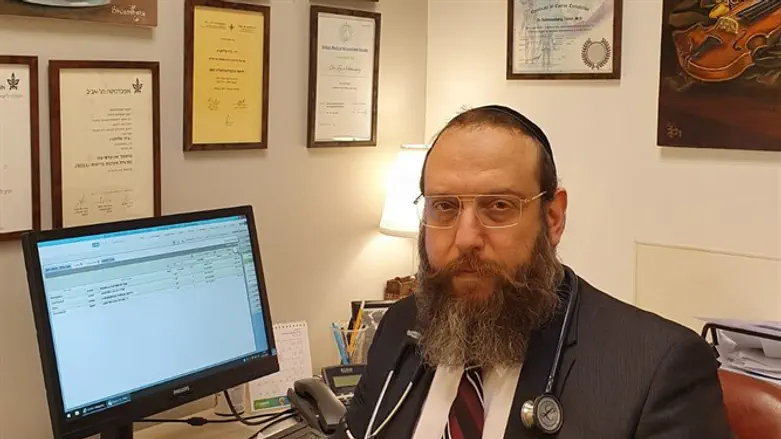
Arutz Sheva spoke with Dr. Tzion Schlossberg, who heads the Department for Treatment of Special Populations and is a member of the Public Information staff at the Health Ministry, about the coronavirus outbreak's impact on the upcoming holiday season.
According to Dr. Schlossberg, Israel is very close to another lockdown.
"There's no question that we need to be responsible and understand that we're very close to finding ourselves with only our immediate family during the Tishrei holidays," he told Arutz Sheva. "If we suddenly see a change for the better in the coming days, and they manage to control the infection rate, and the number of seriously ill and ventilated patients isn't rising, then we'll still be able to change the situation."
"It all depends on how we behave and manage things - in our buildings, in our neighborhoods, in our cities. If we keep the guidelines and control the rising and growing waves of infection, and there is a change for the better, then certainly extreme measures won't be suggested and won't be on the table."
Dr. Schlossberg also said that the Health Ministry is most concerned about the health of the confirmed patients.
"The infection rate is worrying, and what's most worrying is that we have a large number of seriously ill and ventilated patients in the middle of July - and the number is two or three times what we had in June. It's not just the number of people infected, it's the way the infection works, and how it is validated. We need to do everything we can to prevent further spread of the virus," he said.
"The question is what the height of the current wave will be. We are trying to flatten the curve, so that the number of seriously ill and ventilated patients won't be too bad. Therefore it's important for us to gain control of the infection rates, as quickly as possible, so that the maximum height of the current wave will not come close to what it was at the height of the first wave.
"People need to understand that if you develop symptoms - you must get checked. Those who are checked and found to be confirmed cases are entered into their health fund's list of coronavirus patients, which is monitored daily in a way that checks to see if there is a deterioration [in their health]. Therefore, it's important that people get checked and put into the database.
"The more people report when reach a situation in which they develop symptoms and test positive, the more we will be able to find those who they were in contact with, so that we can cut the chain of infection."
